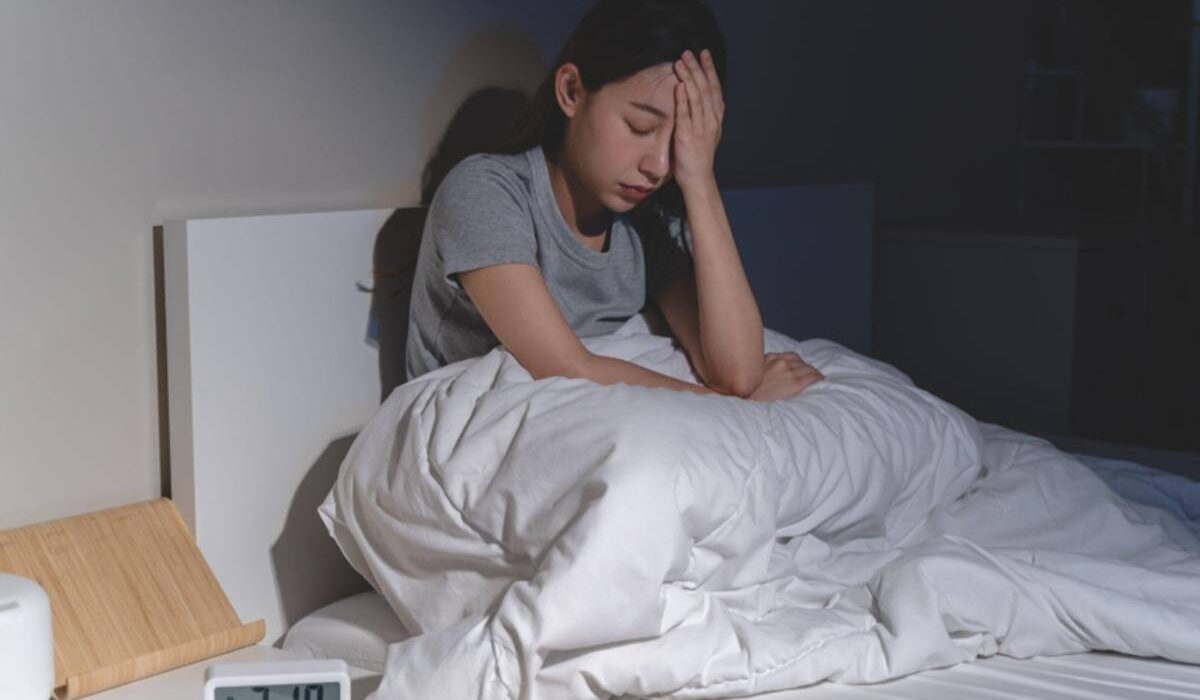If you’re going through a period of stress in your life, it can be hard to get to sleep. Even if you do, it can also be difficult to stay asleep. Whether your stress comes from personal issues, work, the daily pressures of life, or your overactive mind, it can make you toss and turn for some or all of the night. The good news is that there are steps you can take to calm your body and mind for better sleep quality. Knowing practical strategies that help you rest better lets you sleep well, even when your stress level rises.
Make Your Sleep Environment Relaxing
Ideally, a bedroom isn’t just a place for resting at night but an actual sanctuary for sleep. Just a handful of adjustments to your home’s sleep space can improve the potential relaxation substantially enough for you to get to sleep when you’re stressed.
Investing in a comfortable mattress and bed is crucial, and both can make a significant difference in your sleep quality. If your bed isn’t supporting you enough, think about an upgrade to a high-caliber queen mattress with an effective balance of firmness and softness.
Also, you can customize your comfort by looking into adjustable beds that let you elevate your legs and head. Doing so can improve circulation and relieve the tension throughout your body. This is particularly advantageous if your stress levels are resulting in headaches or muscle tension.
Stress can also result in physical overheating and night sweats. Both make sleeping even more difficult, but using cooling pillows can help you stay comfortable all night long by regulating temperatures.
Remove distractions and dim the lights. Electronics and bright lights can keep your brain active, making the process of mentally unwinding harder than it needs to be. Dim lighting during the evening helps you slowdown in preparation for sleep. Avoiding screens before bed is usually better for both falling asleep and staying asleep.
Develop a Pre-Sleep Routine to Reduce Stress
A bedtime routine is a chance to step away from stress and focus on relaxing. Creating a routine of calming activities can prepare your mind and reduce stress levels before you go to sleep. Phone scrolling is always tempting, but reading a book might be healthier.
Avoid flashing lights and electronics that stimulate your eyes and brain. You can even close your eyes and just listen to music or audiobooks. White noise or soothing sounds, such as rain or ocean waves, also help. Deep breathing exercises and meditation can clear your mind and slow down your heart rate. Avoid using alcohol, however. It might relax you into sleep, but it can also boost your metabolism and wake you a few hours later as it gets metabolized.
Manage Your Daytime Stress
If stress keeps you from sleeping, you might recognize the problem only when you’re trying to get some rest at night. However, some of the solutions might need to occur during the day. Regular exercise is a great place to start because physical activity triggers the release of endorphins, which improve mood and reduce stress. Even short yoga sessions or walks outside can make a significant difference.
Any activity that exposes you to natural sunlight for 15 minutes a day helps your body regain a natural internal clock rhythm. Gratitude journaling can be as simple as writing down three things each night that you’re grateful for about that day. Any shift of your focus away from stress and towards positive thoughts makes it easier for you to relax at night. In the hours before bedtime, avoid heavy meals and limit caffeine. Both can make you less likely to sleep. Light snacks might help you unwind, however.
Enhance Relaxation With Sleep Aids
Natural sleep aids might help you relax when it’s time to sleep. Weighted blankets can provide gentle pressure likely to reduce your anxiety levels. When you rest, you’re more likely to get deep sleep. Essential oils are something you can use with a diffuser for the entire room. You can also put a few drops of essential oil on your favorite pillow. Aromatherapy scents, such as eucalyptus, chamomile, or lavender, can improve your sleep quality by promoting relaxation.
Source: New Africa/Shutterstock.com
Train Your Brain to Associate Bed With Sleep
Your brain must recognize your bedroom as a place where you rest instead of stress. Even if parts of your bedroom are designated for other activities, your bed, at least, should be a place of rest. Avoid doing any work in bed, maintain a sleep schedule, and get out of bed when you can’t sleep.
If you spend time in bed working, watching TV, or scrolling on your phone, your brain will associate with those activities instead of sleeping. Also, keep to a sleep schedule. Get up and go to bed at the same time each day. This will help to regulate your internal body clock, and you’ll start to fall asleep easier at the regular time that you choose. However, if you lie down to sleep and are still awake after 20 minutes, get up to do something relaxing, such as stretching or reading.
Sleep Helps to Relieve Stress
It can be hard to get to sleep when you’re dealing with stress, but tackling this challenge with the right approach can improve your rest. The result is waking up empowered to manage your stress and handle the challenges in your life.
Invest in a high-caliber mattress, use an adjustable bed to customize your comfort, and try a cooling pillow to regulate sleeping temperatures. All this can add up to creating the soothing sleep environment you need. Mix and match these with a consistent sleep schedule and relaxation techniques to put yourself on a path to better sleep.


